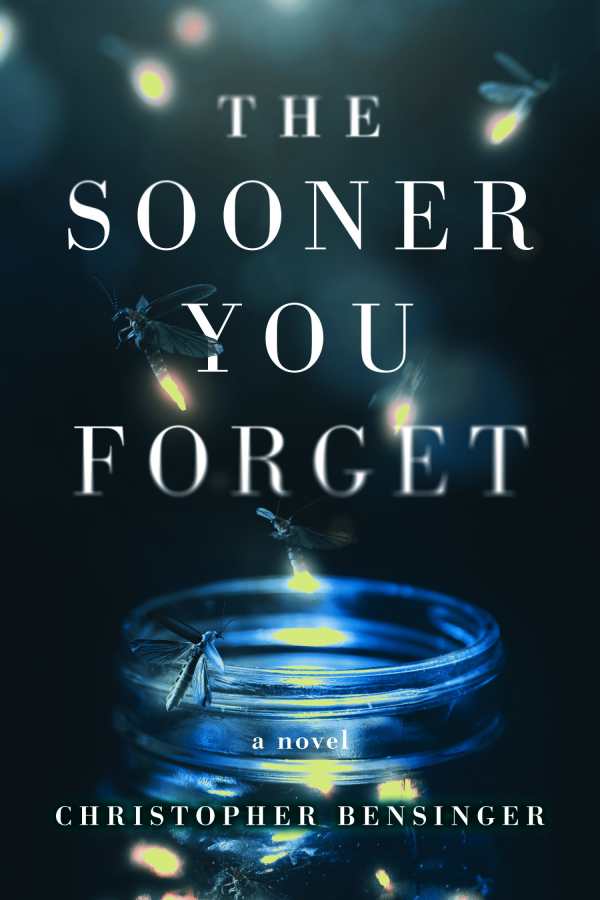The Sooner You Forget
The traumas of war are handled with nuance in the historical novel The Sooner You Forget, about coming home and reconciling oneself to the past.
Christopher Bensinger’s wrenching historical novel The Sooner You Forget is about an American soldier in a Nazi death camp.
Charlie had two dreams: to be a professional baseball player and a pilot. After the former didn’t come to fruition, Charlie volunteered to fight in World War II, accomplishing his second dream in an unexpected way. He leaves behind his family and his fiancée, Sandee. However, he is taken prisoner by the Nazis and sent to a slave labor and death camp. Upon his release, he returns home:
The water is high, roaring downriver, pulling me downstream toward my past. The tops of the tall pines seem to lean, as if tipping their hats, welcoming me back.
Here, he is left to cope with his trauma and face the one mission he has yet to complete.
Charlie exhibits an intriguing mix of strengths and flaws and has both wins and losses. He undergoes an enormous transformation due to his traumatic experiences not only during the war and his imprisonment but also at the hands of his abusive father. His trauma, as well as that of his fellow prisoners of war, is handled with nuance. Herein, recovery is not a linear process. Charlie has good and bad days; he trades between moments of joy and flashbacks and panic attacks.
In comparison to the book’s treatments of its hero and his traumas, Sandee is underdeveloped, present most to provide Charlie with love and support. What the two like about each other is hazy, and their relationship develops with unconvincing speed. Charlie’s bonds with his fellow soldiers and prisoners of war are more poignant, based on shared pain and solidarity. As such, tragedies within his friend groups have great emotional resonance.
Although the book spans decades, its scenes come together in a seamless manner, with smooth transitions between moments and periods even across large gaps, as when Charlie goes from his home to the military. Charlie’s emotions and details about his surroundings anchor the book, whose language is vivid, sensory, and distinct. Evocative lines gesture to factors like bourbon on breath and the scent of perfume. While a shocking twist occurs toward the end of the novel, leading Charlie to question all that he thought he knew, personal triumph balances out the grief and anger, resulting in a bittersweet ending that drives home the mixed nature of life.
Tinged with the triumph of survival, The Sooner You Forget is a compelling historical novel about the impossibility of forgetting traumatic events.
Reviewed by
Carolina Ciucci
Disclosure: This article is not an endorsement, but a review. The publisher of this book provided free copies of the book and paid a small fee to have their book reviewed by a professional reviewer. Foreword Reviews and Clarion Reviews make no guarantee that the publisher will receive a positive review. Foreword Magazine, Inc. is disclosing this in accordance with the Federal Trade Commission’s 16 CFR, Part 255.

